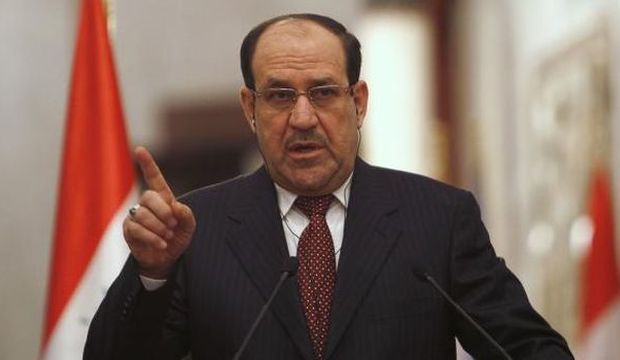Nuri Al-Maliki, the outgoing Iraqi prime minister, could have been a historic hero, not just in Iraq, but for all Arabs and Muslims. However self-interest got the better of him, his insight betrayed him, and all his views and actions ran to narrow partisan politics.
There are politicians and leaders who are able to bear the weight of history, from one event to the next. They are able to capture the imaginations of their people with their words and inspire them. They are able to bear the wounds that they receive and still rise up. These are the few who are able to make history. While there are also those who let the moment slip through their fingers, failing to take a committed position on events but veering from one extreme to the other.
Maliki, head of Iraq’s Shi’ite-led Islamic Da’wa Party, has now lost the backing, support and goodwill of his own party and leadership. His allies in both the State of Law coalition and the Shi’ite-led Iraqi National Alliance have abandoned him. More important than this, he has lost the backing of Iran and the US, not to mention the Kurds who usually stand with Iraq’s historically marginalized Shi’ite community. Of course, Iraq’s Sunni community—whether Arab or otherwise—abandoned Maliki long ago.
Hajj Abu Esra—as Maliki is known in some corners of Iraq—is alone now, whatever he does. It does not matter if he surrounds himself with figures as stubborn, ambitious and arrogant as himself. Not only has that ship sailed, it has already run aground on the rocks of politics and international interests.
The entry of the Islamic State of Iraq and Syria (ISIS) onto the Iraqi scene was perhaps the straw that broke the camel’s back for Maliki, not to mention the ease with which it defeated his military and took over Mosul. When the world, and particularly Washington, looked to see the reason behind this scandal, it became clear that the main reason was the Iraqi people’s hatred for Maliki, including the Kurds, Sunnis and even some Shi’ites. So, this raised questions about Maliki’s administration of Iraqi affairs, and how his military is fighting the ideological “Ebola” of the modern era, namely ISIS.
With tragic stubbornness, Maliki failed to correctly read the scene in Iraq, viewing what is good as bad and what is bad as good.
In January 2013, Maliki reached the point of no return with Iraq’s Sunnis, while he was skirting around the edges of this with the Kurds. He dealt with the Anbar uprising on a sectarian basis and called on his supporters in Baghdad to take to the streets to back his handling of the crisis. The most dangerous thing that he did was to play on the religious sentiments of Iraq’s Shi’ites. I recall a picture of Maliki that I saw at the time, he was standing in the midst of his supporters in Baghdad answering questions about the situation in Baghdad and Mosul. Underneath the image was the slogan, “Supporters of the Mukhtar of this Age,” in reference to Mukhtar Al-Thaqafi, an early Iraqi Islamic revolutionary who led a revolution against the Umayyad caliphate and remains a hero for Shi’ites in Iraq.
Maliki purposefully chose to recall the figure of Thaqafi, who captured the imagination of many Muslims, in order to defeat his political rivals and secure his grip on power, riding a wave of violent and bloodthirsty sectarian discourse.
Iraq was, and remains, a graveyard for political adventurers. Mukhtar was killed at the hands of Mus’ab Bin Al-Zubair (who went on to rule Basra), however he remained a source of inspiration for those who wanted to ride the wave of Shi’ite passions.
Has the new Mukhtar, Nuri Al-Maliki, finally been defeated? Or has he gone only to be replaced by another Mukhtar?
